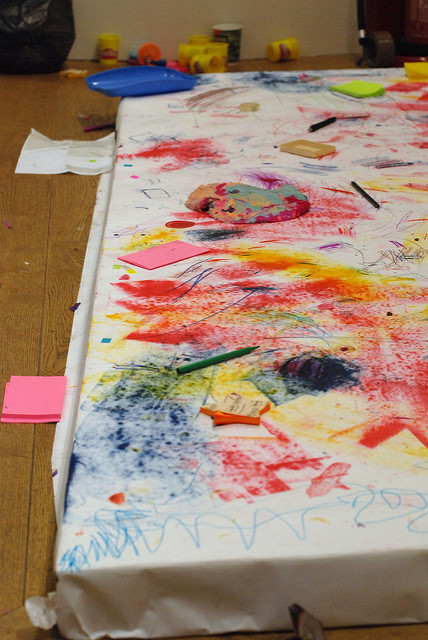A feedback based personal review: how? (part2)
on Archive
In the part 1 of this series I explained “why” you should do a personal review and its benefits. In this post I will explain “how” I did it.
In Aimee Daniells’ 2011 review I liked the format inspired to agile’s retrospectives:
- set the stage,
- gather data,
- generate insights,
- decide what to do,
- close the retrospective.
But if you’re on your own (not working in a group) you may benefit from not following strictly this process, let your thoughts flow and start sketching ideas more freely.
I actually haven’t strictly followed the above process, but is important to recognise in which phase you are and group your data or ideas together using the above categories.
I used a mind map which slowly grew and evolved to the form in the picture below.

I started collecting data on the left side under “2011” under the “work” label, in particular writing the feedback collected from my colleagues. Then while filling my “expectations” I realised that more thinking was needed around “What matters and I really value”. At this point is where I realised that more data and information on the “life” side were needed and the review changed to a wider perspective.
This is only a simple example on how the process very roughly worked for me but I encourage you to follow your own flow.
What worked well during this review?
Was very important growing slowly and rearranging the mind map with new ideas: “No Big Design Up Front”! :)
Continuously review your map and create association between the ideas you’re collecting to generate new insight and new ideas.
The process has been continuos for a couple of weeks: most of this process initially happened in a couple of evenings. Keeping Freemind always open in my laptop and collecting notes on a notebook on my bedside table contributed to add many other late thoughts.
Two parts have been influenced by a couple of books I have red.
To set my “expectations” I started using the method described in Rosamud and Bejamin Zander book “The Art of Possibilities”.
The method is called “Why I deserve an A” , is a method that Ben Zander used with the students in his music class. At the beginning of the school year his students were required to write a letter dated in the future (at the end of the school year) describing the reasons why they deserved an A.
Even if you’re not actually writing in a letter form, this exercise let you to focus on excellence and takes away the tension that harms accomplishment. But remember that what matters more is not the final accomplishment, but step along the learning path and the motivation do to your best to reach it.
And don’t forget that the greatest goals are not the selfish ones, but the ones that move your focus form “I” to “WE”.
Finding the right question is an important part both when you’re asking for feedback and to find the right inspiration for your self-review. To answer the questions on “what I really value” I found very useful Katy Le May’s book “The Generosity Plan”.
What did you considered very positive or negative in the past? Why? and what are the underlying values?
What inspires us most? What work do you see truly making a difference?
Who are the people you admire most?
If you ran the world …fill in this blank…
What is broken and needs to be fixed?
What keeps you up an night?
and what gives you the motivation to get out of the bed in the morning?
Despite the details of this post I still think that is most important that you use your own tools. You should follow a natural process that is able to capture your train of thoughts across multiple days: follow again the principle “people more than processes and tools” :)
Soon I’ll publish the 3rd part I which I’ll try to share how you can use positively all the information that we gathered!
PS. maybe unrelated from this post topic, but you should absolutely watch this TED video from Ben Zander “on music and passion”!
It might be a good source of inspiration to think at your values and for setting your expectations :)
